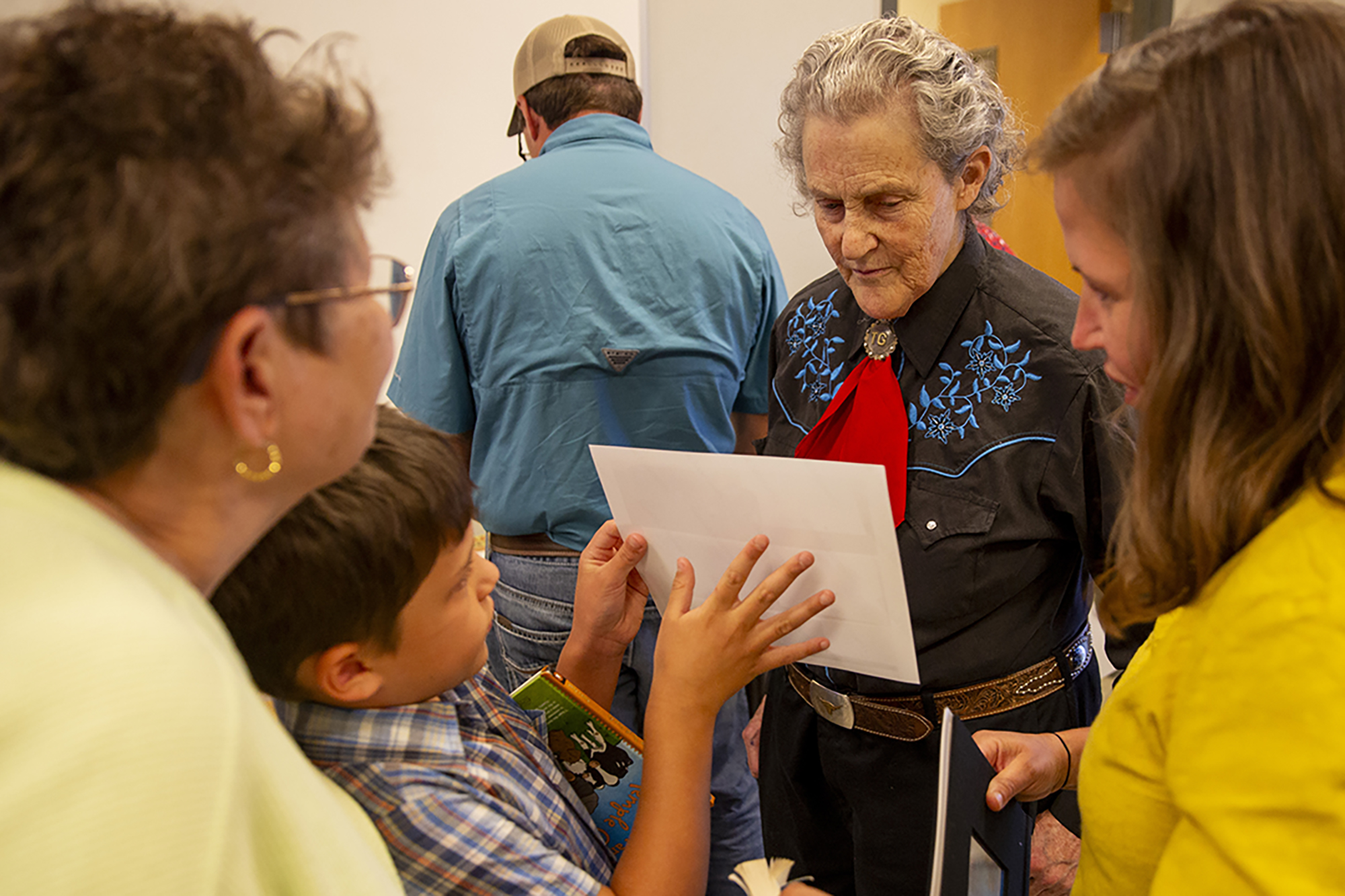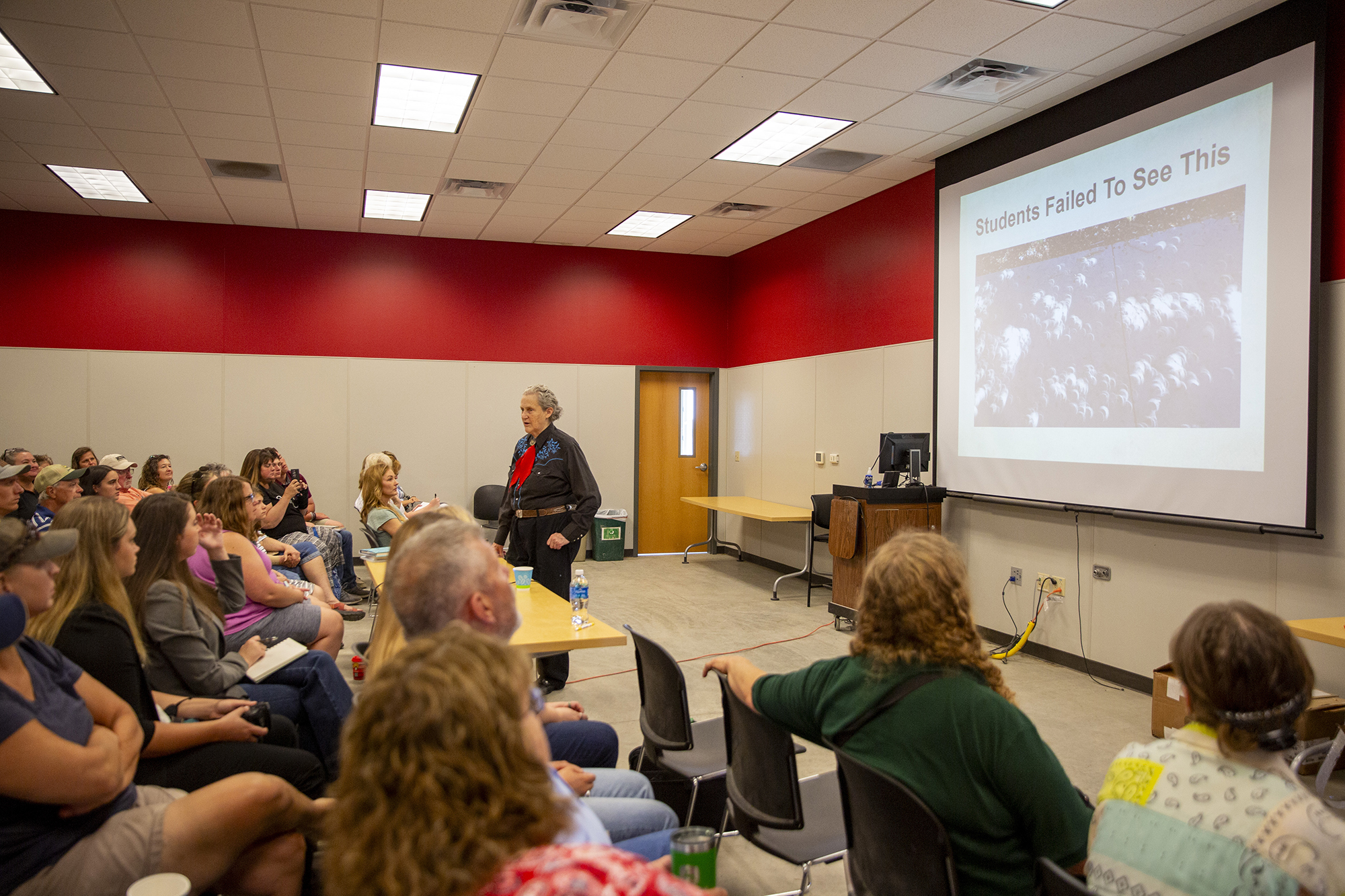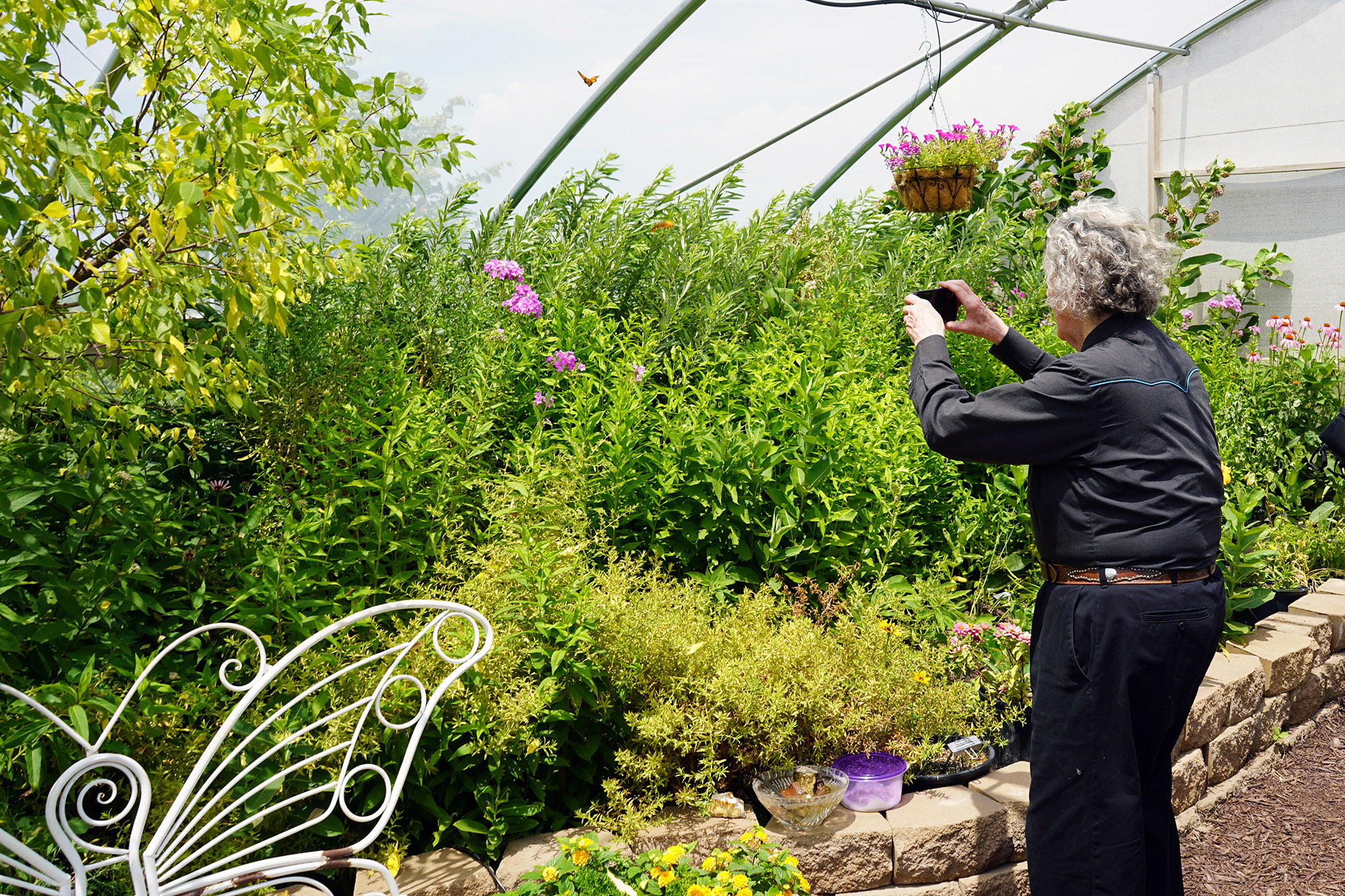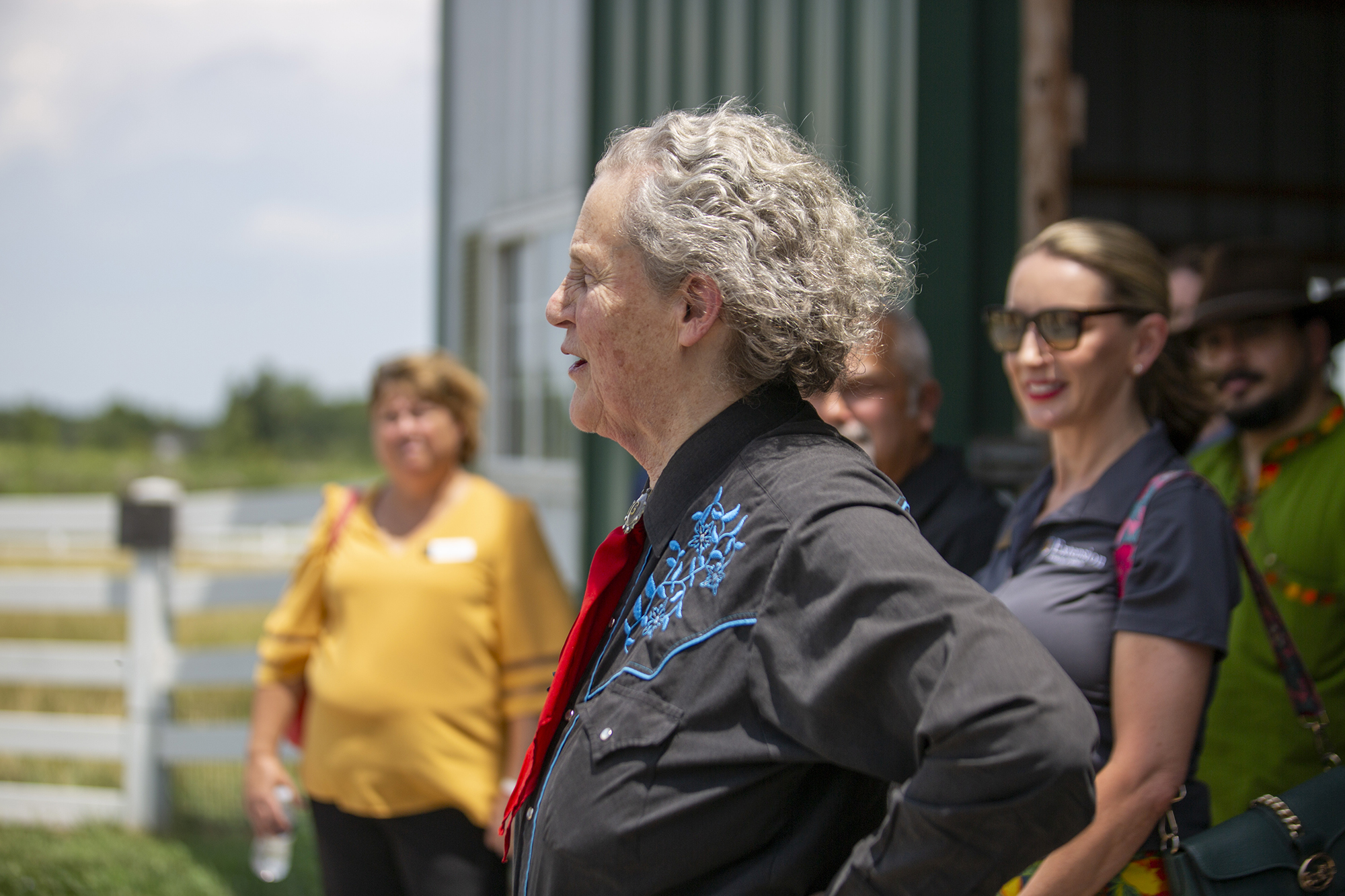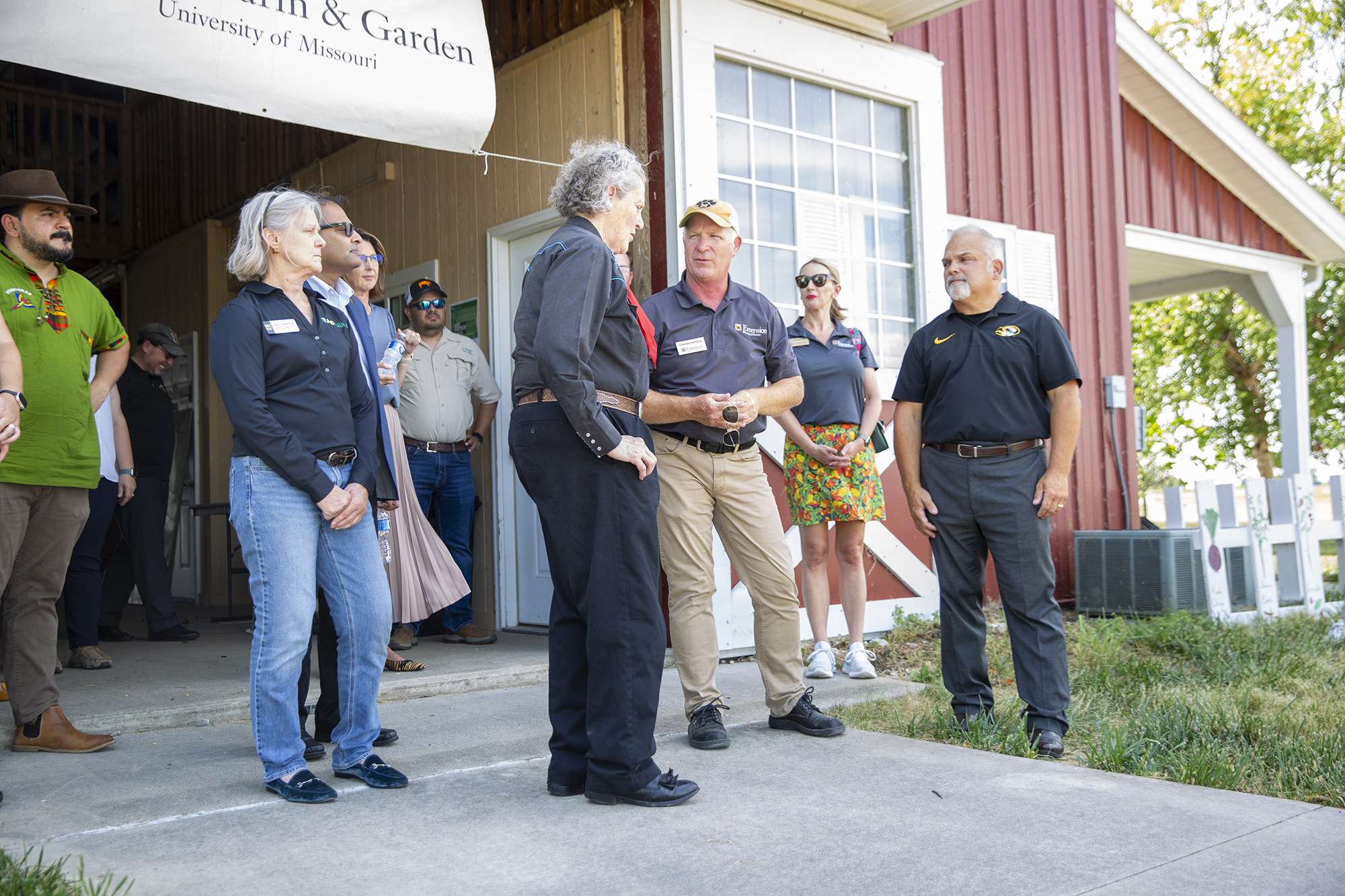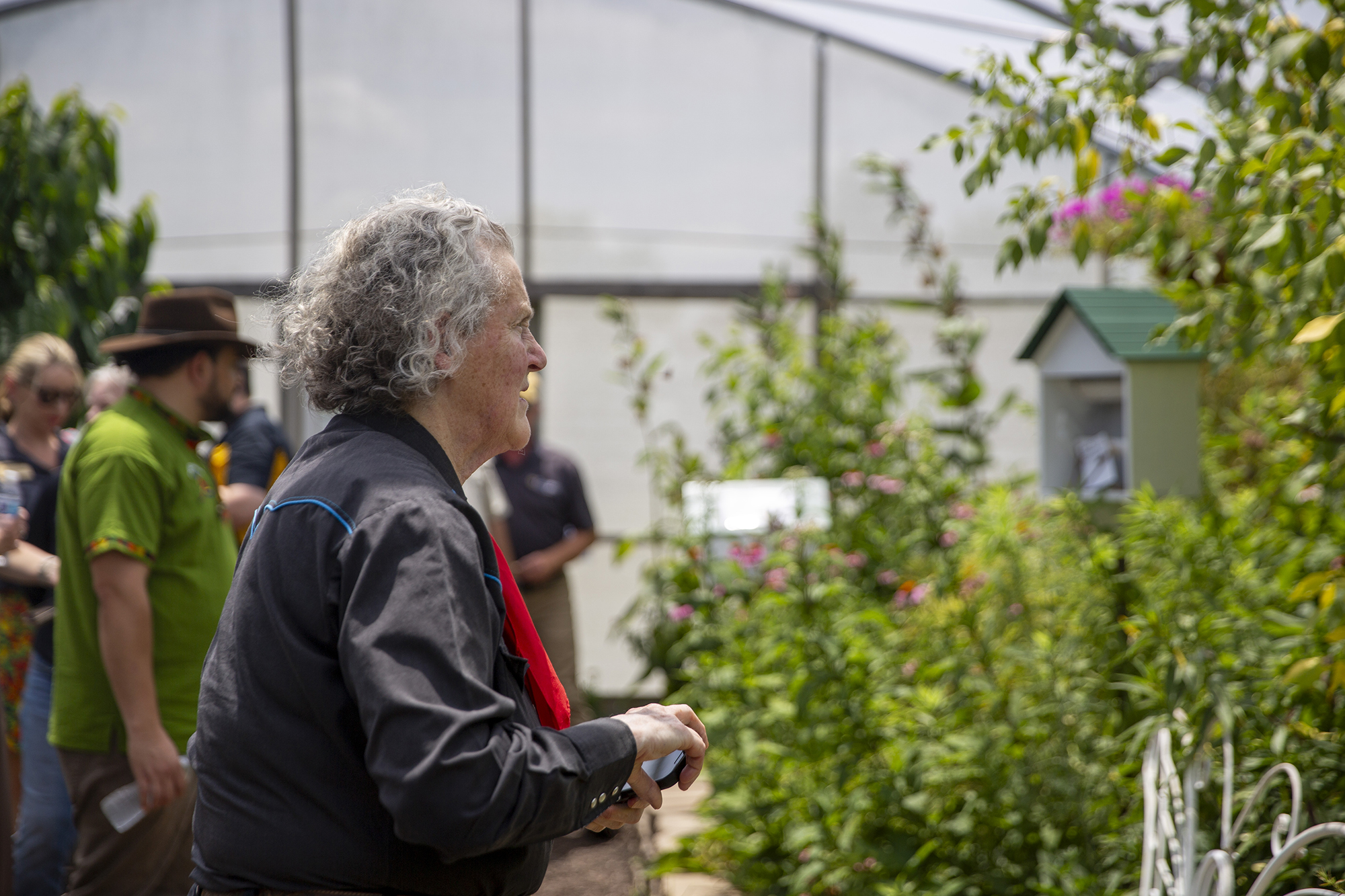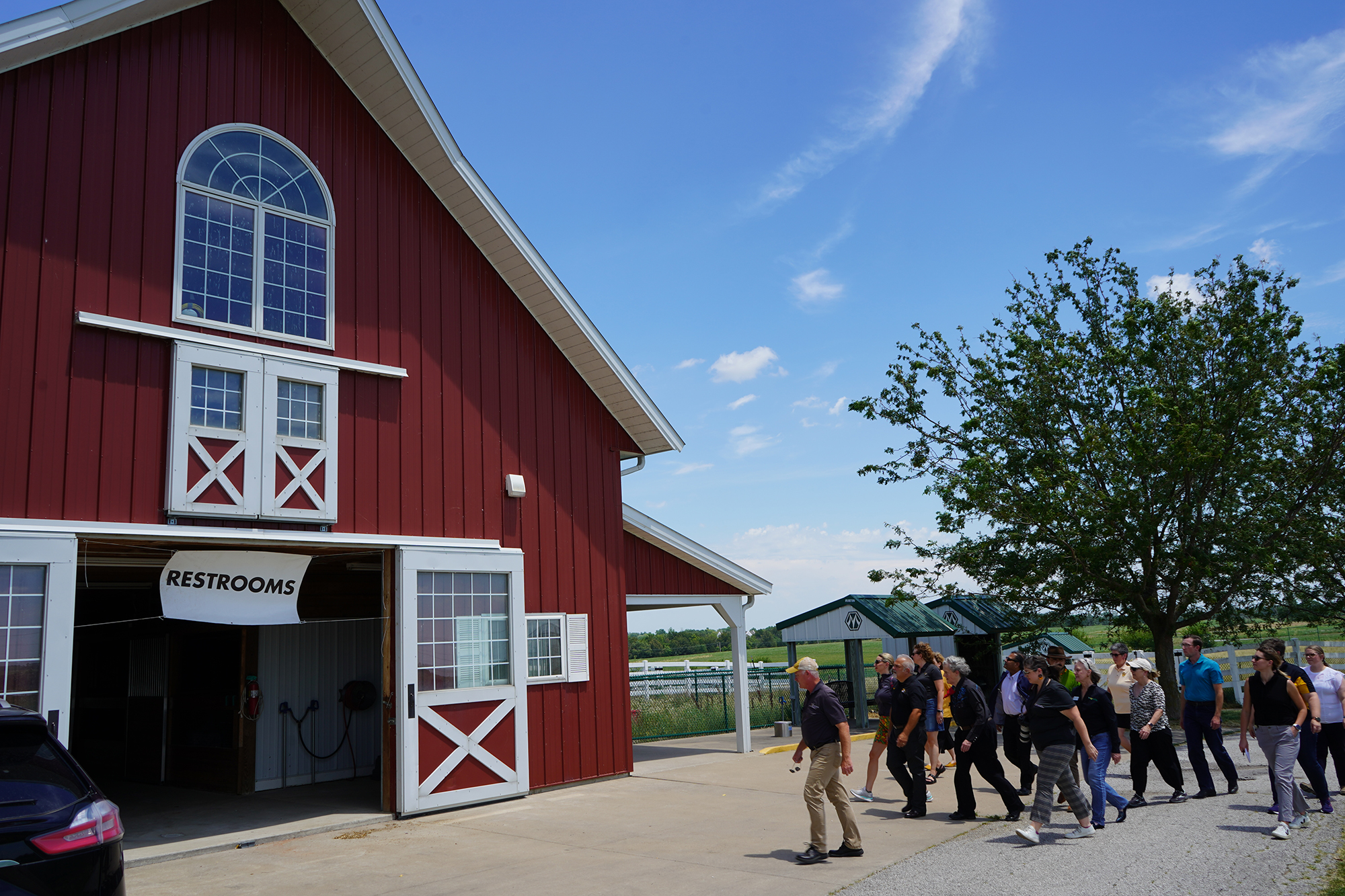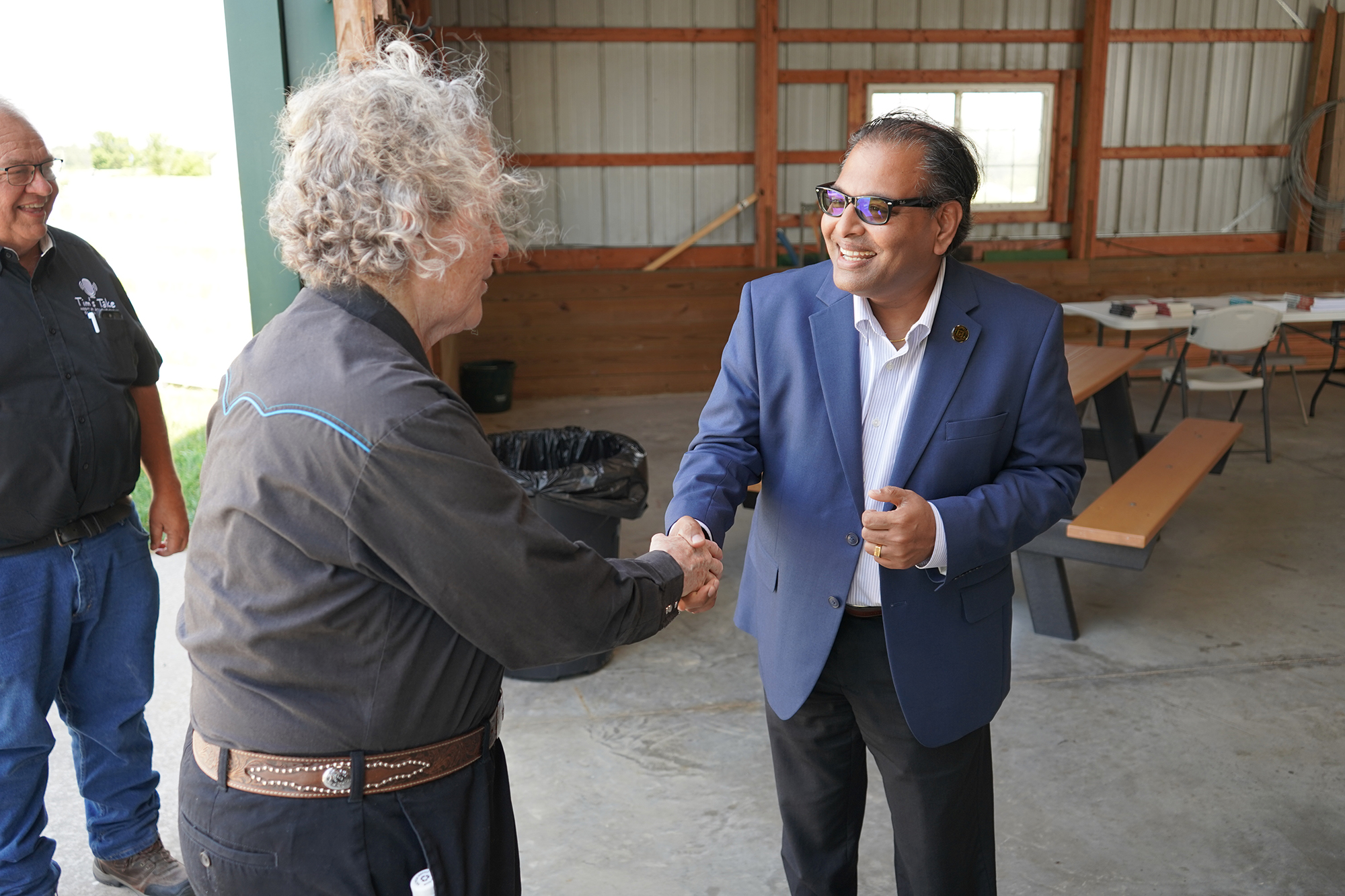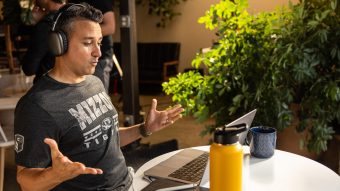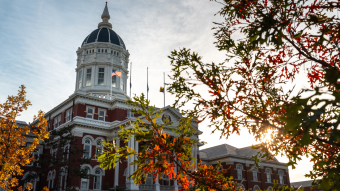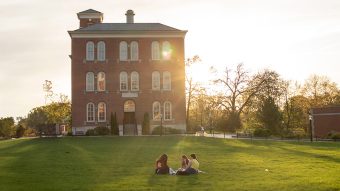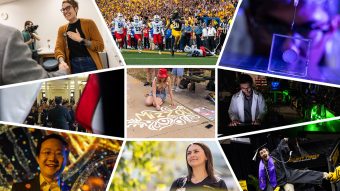June 28, 2024
Contact: Courtney Perrett, cperrett@missouri.edu
Photos by Genevieve Howard and Shannon Beck
From revolutionizing animal welfare practices to broadening our understanding of autism, Temple Grandin is known for making the world a better place. In a recent trip to the University of Missouri, she visited with more than 300 students from the Missouri Scholars Academy, where she imparted wisdom on the ways she overcame the obstacles on her path to becoming a world-class animal behaviorist.
While she was in town, Grandin visited Mizzou’s Beef Research and Teaching Farm, where she hosted a community event on best practices for cattle-handling and farm management. She also toured Jefferson Farm and Garden Extension Center, a 60+-acre farm whose mission is to engage the community in experiences related to food, agriculture and the environment.
A longtime professor at Colorado State University, Grandin has transformed animal behaviorism during her 34-year career as an animal scientist. Over decades, she championed new techniques for keeping cattle calm, including designing stress-free cattle-handling systems used by commercial packing operations today. Underlying her distinguished career of service, Grandin serves as a role model for others who, like her, live with autism. She works continuously to advocate for career and educational opportunities for all.
Thinking in pictures
Although Grandin believes labels can hold autistic people back if they are not exposed to new things, she nods to her neurodivergence with gratitude for the ways it has shaped her perception of the world. The self-described “visual thinker” used her heightened sensory awareness and visual acuity to spot and grapple with the flaws in the cattle-management system.
During her field research, she noticed features such as the interplay of lighting and shadows in a pen, the texture of the floor, the position of a handler and the colors surrounding the facility – all of which could be triggers for cattle, potentially making the animals fearful and difficult to handle safely.
As a foremost expert in animal welfare science, Grandin travels internationally to share her expertise. In her role as an academic and professor, Grandin teaches and advises master’s and doctoral students while continuing her own research, which now has an added focus — the influence of artificial intelligence (AI) on agriculture. She also consults for multinational brands such as McDonald’s and Costco on management practices for packing plants.
With AI shaping the industry in new and exciting ways, the role of support systems like MU Extension are as vital as ever.
Stewarding Missouri’s sacred resources and preparing the land for generations to come are practices embodied by MU Extension’s Grand Challenges, which exemplify what it means to truly serve the agriculture industry and the people who make it successful.
A boon for bovine
A New England native, Grandin got her first taste of agriculture at 15 years old when she was encouraged by her mother to fly out west to her aunt’s ranch in Arizona.
“My mother gave me a choice,” Grandin said. “I would go to the farm, and if I didn’t like it, I could come home right away.”
And now, as Grandin will tell you herself, the rest is history.
In her research and teachings, Grandin is quick to point out that exposure to new experiences and freedom of choice are vital elements for people with autism to feel empowered to bridge their comfort zones.
In her tour of Mizzou’s Jefferson Farm and Garden, Grandin praised MU for its diverse resources and commitment to inclusivity in agriculture. Expressing her admiration for the Master Gardener program fostered by MU Extension, Grandin made a point to recognize the university’s commitment to hands-on learning—a way of teaching and learning she knows opens doors for people with autism.
“I know autistic people who own ranches and metal fabrication shops,” Grandin said, explaining that, as people who think visually, autistic people often are skilled when it comes to building machinery. “Programs like Master Gardener and the Center for Tree-Ring Science would help autistic people make friends through shared experiences. There are opportunities for autistic people to work in greenhouses and have careers as entrepreneurs.”
